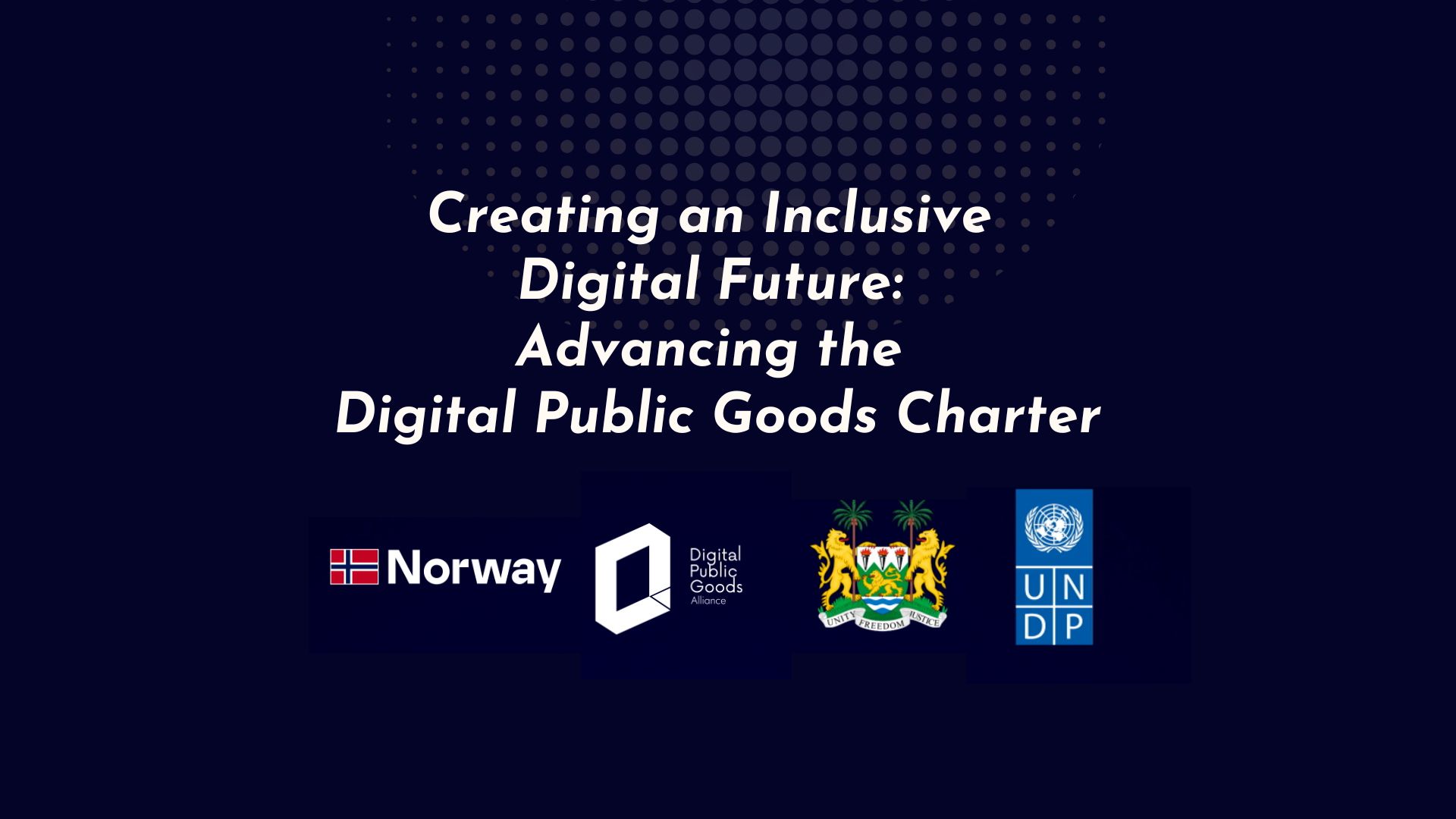Heralding A New Era of Global Digital Cooperation

Governments, funders and international organisations are joining forces to create an inclusive digital future that ensures no one is left behind.
On 1 June 2022, high-level representatives from governments, the philanthropic sector, and international organisations came together to express their commitments to increased collaboration on digital development and digital public goods. Convened by the Governments of Norway and Sierra Leone, the United Nations Development Programme, and the Digital Public Goods Alliance (DPGA), the 90-minute discussion catalysed new DPGA memberships, funding commitments, and political endorsements for the Digital Public Goods Charter.
Five new Digital Public Goods Alliance memberships announced
The DPGA is emerging as a key global forum for digital cooperation. At the event, Bangladesh, India, Rwanda, Uganda, and the United States Agency for International Development (USAID) announced their membership in the alliance. The new perspectives, technologies, and knowledge these stakeholders bring will significantly advance the reach and impact of the DPGA.
New members will contribute to the DPGA according to their experience and expertise. For example:
- Bangladesh will focus on improving quality, widening access, and decentralising delivery of public services to citizens;
- India committed to share key technologies such as its Unified Payment Interface (UPI) that enables inter-bank transactions, and to provide technical assistance for its implementation in other countries;
- Rwanda will build an open data portal for citizens and work with Mojaloop on interoperable payment systems;
- Uganda will share lessons learned from building their digital exchange platform; and
- USAID will continue investing in the DPG ecosystem, including building on the USD 170 million they’ve already contributed to Digital Square.
As the DPGA continues to expand, commitments like these will help to strengthen the ecosystem for digital cooperation and South-South cooperation on digital development.
Key insights on what works from digital pioneers
Digital pioneers such as Bangladesh, Estonia, India, Rwanda, and others shared their perspectives on success factors that have contributed to their countries’ digital transformation. These factors include a focus on interoperability for key components of digital public infrastructure (DPI); the decentralisation of public service delivery, such as in Bangladesh; and reusing existing digital public goods, such as the Philippines’ implementations of the DPGs DIVOC and MOSIP. These experiences provide actionable insights, which countries can adopt to fast-track their digital transformation journeys.
Jointly funding the development and deployment of digital public goods at scale
A range of stakeholders expressed their commitments to long-term funding and support for digital public goods and digital public infrastructure. Estonia committed to continue its support of the DPG X-Road, whilst also pledging to develop open-source AI solutions by the end of 2023 in which Estonia is investing EUR 20 million. Germany and Norway committed to continued support for the digital development agenda, both politically and with funding for key initiatives such as the DPGA and GovStack as a priority. As a co-host for the event, the Government of Sierra Leone committed to the implementation of additional DPGs, such as the modular open-source identity platform known as MOSIP mentioned above.
During an engaging panel discussion, Bill Gates, co-chair of the Bill & Melinda Gates Foundation, and Nandan Nilekani, Co-Founder and Chairman of Infosys Technologies Limited, spoke in support of the DPG Charter and confirmed their strong commitment to help advance investments in digital public infrastructure, enabled by DPGs, for financial inclusion, social protection, and inclusive development.
As the effects of the Ukraine war and the COVID-19 pandemic are putting development budgets increasingly under pressure, these kinds of commitments are more critical than ever.
Endorsement of the DPG Charter’s vision
To bring together like-minded countries around a joint vision for an inclusive digital future, as well as sustain the political commitment towards funding digital public infrastructure, the DPG Charter, co-led by the DPGA and the Digital Impact Alliance (DIAL), will serve as a key mechanism to solicit pledges for funding, knowledge, and technologies from all involved stakeholders. High-level representatives from governments and organisations such as UNDP and UNICEF also announced their commitment to the DPG Charter at the event. USAID highlighted not only its commitment to the vision of the DPG Charter, but also the need for more global digital cooperation.
As USAID Deputy Administrator Paloma Adams-Allen underscored:
“We recognise that no individual country or government alone can construct global norms. We must all work to build and maintain inclusive digital ecosystems and promote responsible use of technology. I am urging all our country partners to join us in support of the creation of a Charter for Digital Public Goods, and in support of the vision statement that we are announcing today.”
Building DPI for development is critical for building resilient and inclusive societies. This was further articulated in a statement by Mykhailo Fedorov, Vice Prime Minister and Minister of Digital Transformation of Ukraine, who highlighted the critical role of DPI during a crisis:
“It is the digital public infrastructure that makes it possible for us to continue delivering services to our citizens. It also becomes the bedrock for the data-driven decision making process, especially when it comes to a sustainable and inclusive reconstruction and recovery of our country. Our citizens deserve digital public infrastructure and convenient digital services.”
What’s next for DPGs and the DPG Charter?
Global cooperation on digital development is more important than ever. As emphasised by UNDP Administrator Achim Steiner:
“By collaborating on the development and implementation of digital public goods, we save time, effort, and reduce duplication. By pooling our expertise, funding, and coordinating our technical assistance, we have an opportunity to truly reach transformative impact on the country level. Global alignment and mobilisation are needed to achieve this vision.”
Over the next 12 months, the DPG Charter will solicit additional pledges from governments, international organisations, private sector stakeholders and funders.